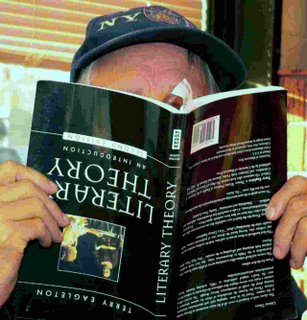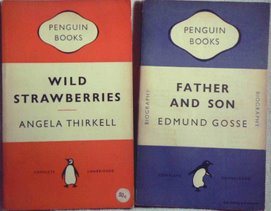Another Harry Potter Appears in Mid-Summer
The Deathly Hallows, by J. K. Rowling, which will be released in July 2007 ("A Midsummer's Night Dream" for booksellers I guess) might have side benefits for used book shops if it helps clear out the accumulated 'back list' most shops now hold in HP titles. Just buy one new title and put it in the middle of your display and see what that fetches for the surrounding dead pulp - that's my advice. (You aren't overstocked? Pardon moi.)
I really have nothing more to say, other than my pitch for carrying multilingual stock, especially in French, Spanish and German. So let us give a pitch in Espanol. (My Spanish 'language toolbar' is failing to perform on these 'n' accents, sorry!)
AP Spanish | 02/01/2007 |
'Harry Potter and the Deathly Hallows'
Associated Press
LONDRES - 'Harry Potter and the Deathly Hallows', el último de los siete libros sobre las aventuras del niño mago, será publicado el 21 de julio, dijo el jueves la escritora J.K. Rowling.
Rowling anunció la fecha de la publicación en su página de internet.
Bloomsbury, su casa editora británica, dijo que publicará una edición de tapas duras de niños, una de adultos de tapas duras, y una edición especial de regalo y un audiolibro el mismo día.
Scholastic Children's Books, la casa editora en Estados Unidos, manifestó que ofrecerá una edición de tapas duras a 34,99 dólares, una edición de lujo a 65 dólares, y una edición reforzada para bibliotecas a 39,99 dólares."
Many New York City publishers are getting into their own Spanish editions for the 11 million Hispanophones in the North American continental market, so supplying the multilingual market is becoming both easier and a necessity. For used book dealers, it all depends on attracting a larger customer base by expanding your stock linguistically.
A word to the wise . . .
Oh, by the way, here at CPE we would like readers to point us toward an essay or two that compares the history of Latin American authors with UK authors 'getting the jump on' US fiction writers.¨Particulary in the genre of fantasy mixed with the quotidian (or 'magic realism'). Is not this half centuty of the English getting the jump on everyone in the genre of the pure fantastic worthy of deep thought and criticism? Tolkien and Rowling could compare, I believe, with the Beatles and the Rolling Stones in their respective cultural domains. Or do you think I'm out lunching on fish 'n' chips with this one? Please comment.
Do not forget that T. S. Eliot, the St. Louis boy, became a Brit and that Ezra Pound became a Euro-whatever to go on to become the last centuries central icons in poetry. Europe is having her revenge inside the pop markets of word an song I do believe, and over a span of 50 years: except in the confessional and grit lit. Please respond.


